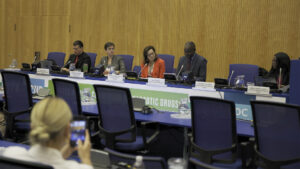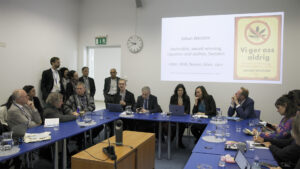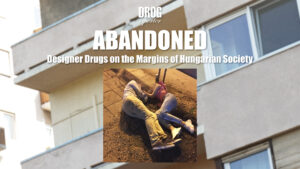Sanpa, a new miniseries now featured on Netflix, tells the story about how a man’s dream of saving people from addiction turned into a nightmare.
Where is the line between therapy and abuse? What is the difference between an autonomous community and a total institution? Do people struggling with addictions have free will?
These rather philosophical questions are the focus of Cosima Spender’s new TV show, Sanpa, which is now available on Netflix. But the miniseries is far from a theoretical treatise on ethical questions. It is the story of a therapeutic community (San Patrignano), led by a charismatic leader (Vincenzo Muccioli), whose mission is to help drug users. It tells the story of how this community became paradise for some – and hell for others.
In the 70s Muccioli, surrounded by a group of followers, established his spiritual community on his family farm near Coriano, a small Italian town. He offered a solution to people who were hooked on heroin, which had spread rapidly on the streets of Italy at that time. “Come to us and we will not only help you to recover but you can be part of something bigger, a loving and caring community,” he told them.
And young people came in their hundreds, and later in their thousands. The addiction treatment system mostly consisted of rigid total institutions where drug users felt alienated and subordinated. For many people who lived on the street in deep poverty, excluded from society from one day to the next, San Patrignano was a Promised Land where they could start their lives over.
Muccioli’s community had many characteristics of the classical psychological description of a cult.
These included:
Love bombing: Newcomers are overwhelmed by loving words and actions to gain their total trust.
Brainwashing: An indoctrination to create a strong group identity and acceptance of the spiritual worldview of the group.
A charismatic leader: A father figure who is a master of mind control and uses punishment and public humiliation to force members into submission.
Strict rules: You are never left alone by your guide. The community has total control over every activity of your body and soul. And if you want to leave, you are not allowed – but you are punished.
The series present gruesome evidence about people being chained in dirty, dark cellars for days, or even weeks. Muccioli himself boasts of giving “educative” beatings to members of the community “as a father would do to a misbehaving child.” He says this is all necessary to save them from the greater evil – addiction, which leads to death and suffering.
But Muccioli uses more than just physical force. He has real psychological control over his “children”, like many abusers do. A very interesting scene shows how he convinces a girl who escaped from San Patrignano to come back. I had goosebumps watching his hypnotic power over these young people who had lost all their self-esteem.
What is most staggering is how the film portrays social reactions to the systematic abuse of people. When an escaped girl presents testimony of her kidnapping, abuse, and detention at the hands of Muccioli and his bullies, a criminal investigation begins.
But the majority of Italian society sides with the abuser and not with the abused.
Because they are “just junkies” who gave up their freedoms when they chose to be slaves to chemical substances, they are not considered citizens with rights, but deviants who endanger the fabric of society.
It is scary to see how easily people give up the ideas of human dignity and civil liberties when it comes to social groups that are hated and excluded. Despite the evidence of his crimes, Muccioli becomes a celebrity, venerated as a saint. Parents whose children are abused by him actually thank Muccioli for his service and angrily demand his acquittal!
He became a symbol that catalysed the demand for a tough-on-drugs policy and contributed to the adoption of repressive criminal laws in Italy.
The concept of “tough love” – treating people who use drugs harshly with the intent to help them – is still very popular. Many people believe that you have to discipline and humiliate people who use drugs to help them to recover. But there is a growing body of evidence that this approach is based on a false concept of addiction. It is not simply a lack of willpower or a brain disease caused by drug use. What we experience from outside as a loss of self-control is often caused by traumatic experiences, social exclusion, and isolation. Many who suffer from addictions have been abused by authoritarian parents.
People with shattered self-esteem do not need discipline and shaming, but empathy. If you want to save their lives you need to provide them with harm reduction services. You can motivate them to recover and help them when they are ready – but using violence to force them into submission leads down a dark path. Sobriety and abstinence may be nice ideas, but they are not absolute goals that can legitimise depriving people of their human rights.
Peter Sarosi






